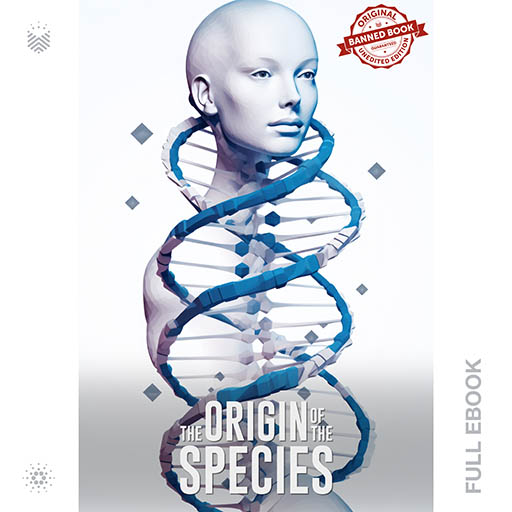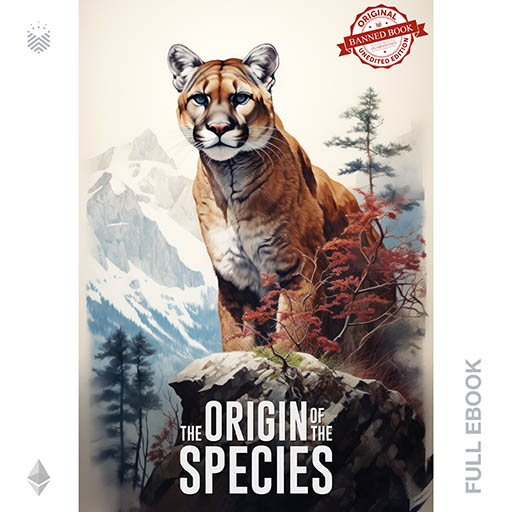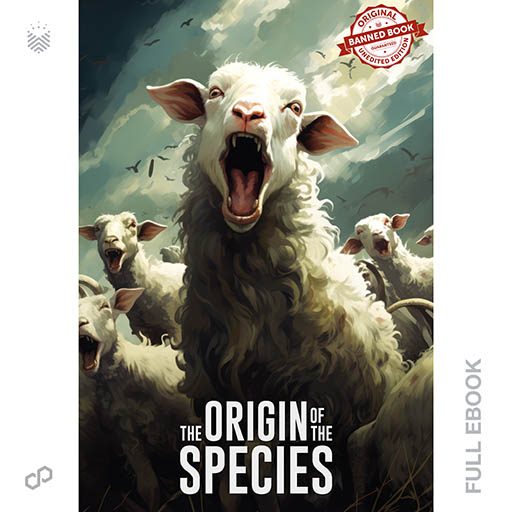“The Origin of Species” is a revolutionary book written by Charles Darwin and published on November 24, 1859. Its full title is “On the Origin of Species by Means of Natural Selection, or the Preservation of Favoured Races in the Struggle for Life.” This groundbreaking work is considered one of the most influential scientific books ever written and has had a profound impact on our understanding of biology and the theory of evolution.
The main idea presented in the book is Darwin’s theory of evolution through natural selection. Darwin proposed that species evolve over time through a process of descent with modification, where new species arise from common ancestors due to the gradual accumulation of small variations. These variations are advantageous or disadvantageous in relation to the environment, and those organisms with advantageous traits are more likely to survive and reproduce, passing their beneficial traits on to their offspring. This process leads to the adaptation of species to their environment and the diversification of life forms.
Description
From Wikipedia: On the Origin of Species (or, more completely, On the Origin of Species by Means of Natural Selection, or the Preservation of Favoured Races in the Struggle for Life) is a work of scientific literature by Charles Darwin that is considered to be the foundation of evolutionary biology; it was published on 24 November 1859. Darwin’s book introduced the scientific theory that populations evolve over the course of generations through a process of natural selection. The book presented a body of evidence that the diversity of life arose by common descent through a branching pattern of evolution. Darwin included evidence that he had collected on the Beagle expedition in the 1830s and his subsequent findings from research, correspondence, and experimentation.
Various evolutionary ideas had already been proposed to explain new findings in biology. There was growing support for such ideas among dissident anatomists and the general public, but during the first half of the 19th century the English scientific establishment was closely tied to the Church of England, while science was part of natural theology. Ideas about the transmutation of species were controversial as they conflicted with the beliefs that species were unchanging parts of a designed hierarchy and that humans were unique, unrelated to other animals. The political and theological implications were intensely debated, but transmutation was not accepted by the scientific mainstream.
The book was written for non-specialist readers and attracted widespread interest upon its publication. Darwin was already highly regarded as a scientist, so his findings were taken seriously and the evidence he presented generated scientific, philosophical, and religious discussion. The debate over the book contributed to the campaign by T. H. Huxley and his fellow members of the X Club to secularise science by promoting scientific naturalism. Within two decades, there was widespread scientific agreement that evolution, with a branching pattern of common descent, had occurred, but scientists were slow to give natural selection the significance that Darwin thought appropriate. During “the eclipse of Darwinism” from the 1880s to the 1930s, various other mechanisms of evolution were given more credit. With the development of the modern evolutionary synthesis in the 1930s and 1940s, Darwin’s concept of evolutionary adaptation through natural selection became central to modern evolutionary theory, and it has now become the unifying concept of the life sciences.
Numbered eBooks: 700
Number of Unique Covers: 700
Number of 1:1 Covers: 700
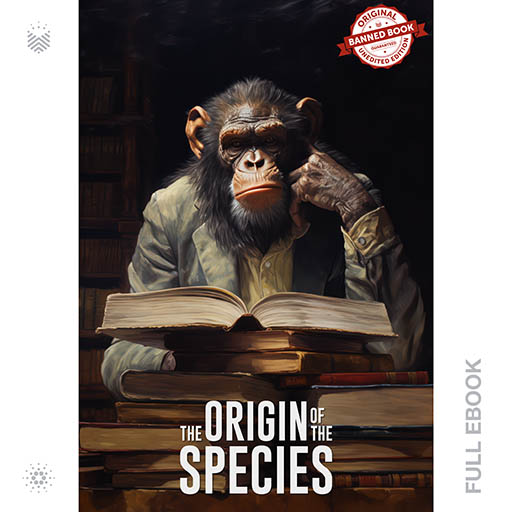
The Evolution
110 Unique Designs
x 1 Numbered eBooks
= 110 NFT eBooks
eBook Numbers 590 - 699
(15.71% of Supply)
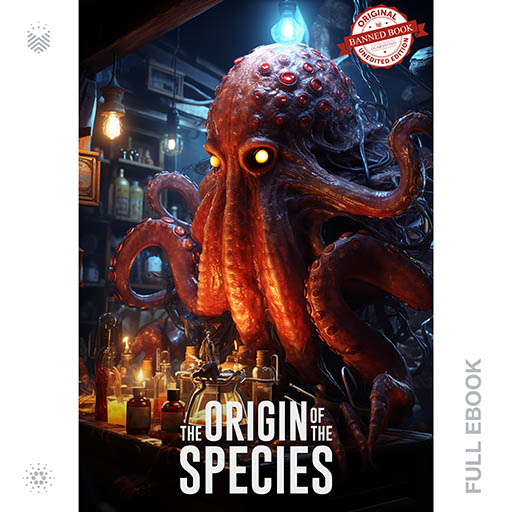
The Origin of Marine Life
109 Unique Designs
x 1 Numbered eBooks
= 109 NFT eBooks
eBook Numbers 481 - 589
(15.57% of Supply)

The Living Galapagos
98 Unique Designs
x 1 Numbered eBooks
= 98 NFT eBooks
eBook Numbers 383 - 480
(14.00% of Supply)
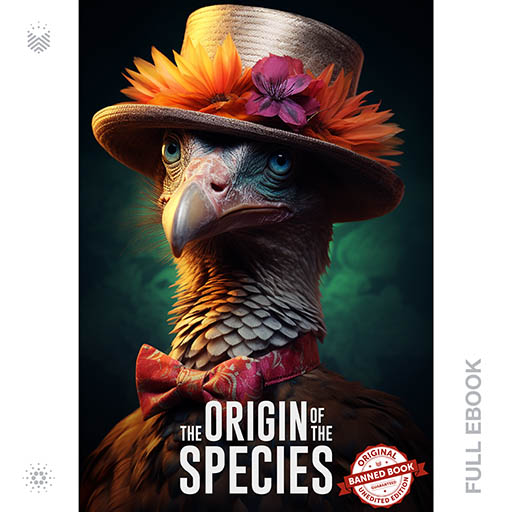
The Origin of Avian
84 Unique Designs
x 1 Numbered eBooks
= 84 NFT eBooks
eBook Numbers 299 - 382
(12.00% of Supply)
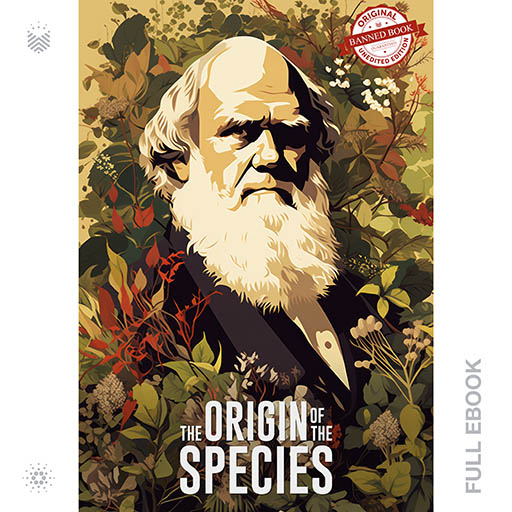
The Naturalist
61 Unique Designs
x 1 Numbered eBooks
= 61 NFT eBooks
eBook Numbers 238 - 298
(8.71% of Supply)
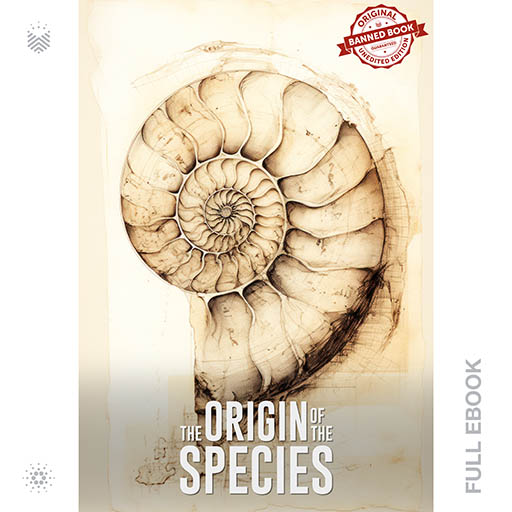
The Fossil Evidence
45 Unique Designs
x 1 Numbered eBooks
= 45 NFT eBooks
eBook Numbers 193 - 237
(6.43% of Supply)
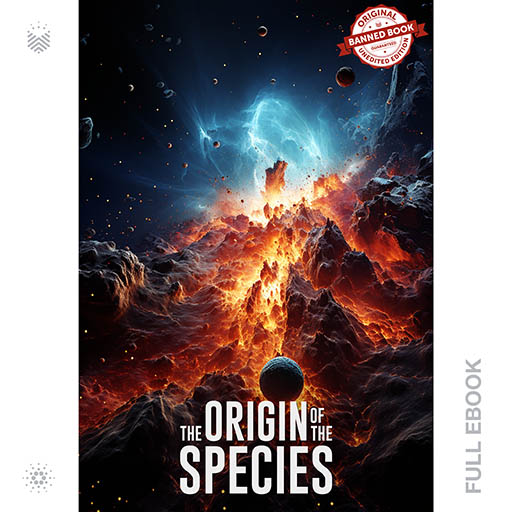
The Extinction Events
41 Unique Designs
x 1 Numbered eBooks
= 41 NFT eBooks
eBook Numbers 152 - 192
(5.86% of Supply)

The Origin of the Terrestrials
40 Unique Designs
x 1 Numbered eBooks
= 40 NFT eBooks
eBook Numbers 112 - 151
(5.71% of Supply)

The Extinct
39 Unique Designs
x 1 Numbered eBooks
= 39 NFT eBooks
eBook Numbers 73 - 111
(5.57% of Supply)

The Homo Sapiens
28 Unique Designs
x 1 Numbered eBooks
= 28 NFT eBooks
eBook Numbers 45 - 72
(4.00% of Supply)
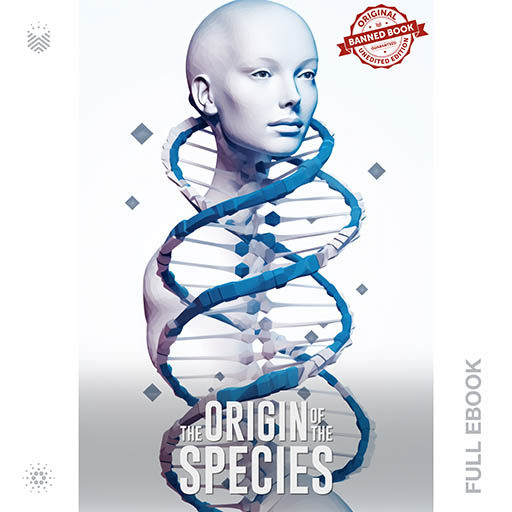
The Hidden Genome
24 Unique Designs
x 1 Numbered eBooks
= 24 NFT eBooks
eBook Numbers 21 - 44
(3.43% of Supply)
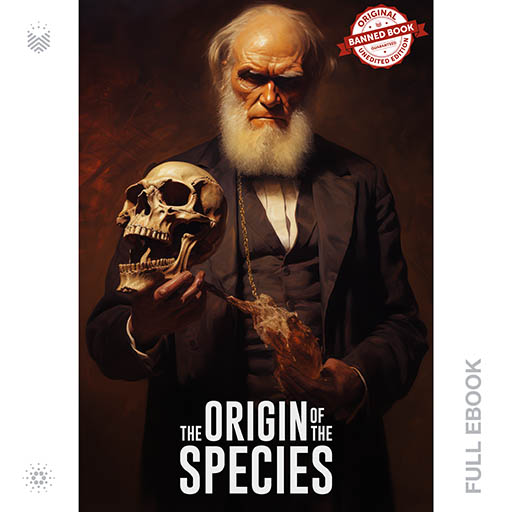
The Darwinism
21 Unique Designs
x 1 Numbered eBooks
= 21 NFT eBooks
eBook Numbers 0 - 20
(3.00% of Supply)
Numbered eBooks: 100
Number of Unique Covers: 100
Number of 1:1 Covers: 100
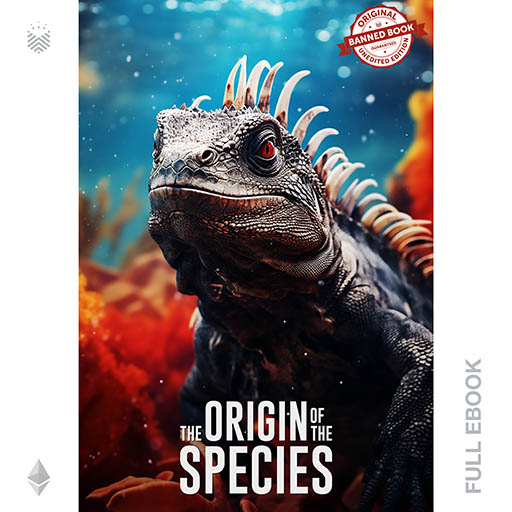
The Living Galapagos
29 Unique Designs
x 1 Numbered eBooks
= 29 NFT eBooks
eBook Numbers 71 - 99
(29.00% of Supply)
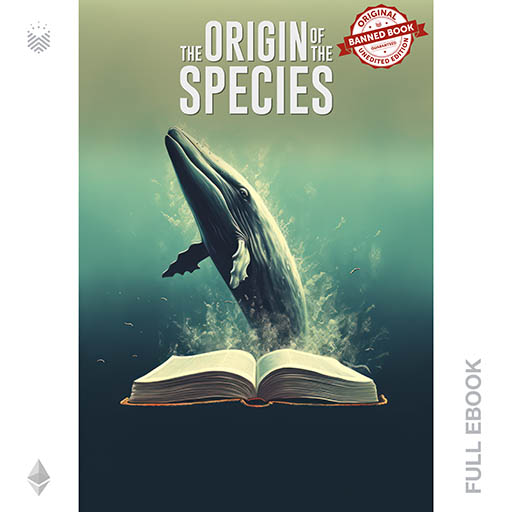
The Origin of Marine Life
18 Unique Designs
x 1 Numbered eBooks
= 18 NFT eBooks
eBook Numbers 53 - 70
(18.00% of Supply)
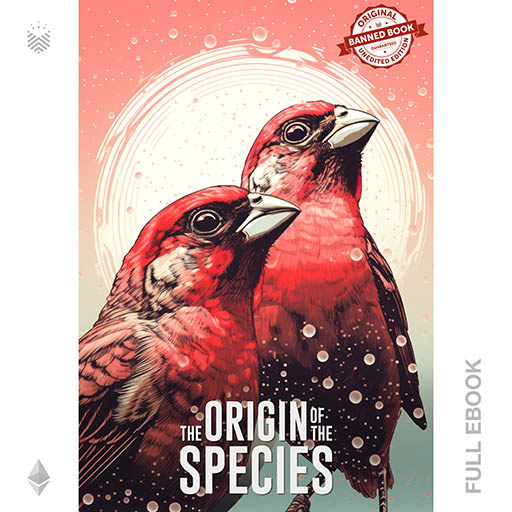
The Origin of Avian
13 Unique Designs
x 1 Numbered eBooks
= 13 NFT eBooks
eBook Numbers 40 - 52
(13.00% of Supply)
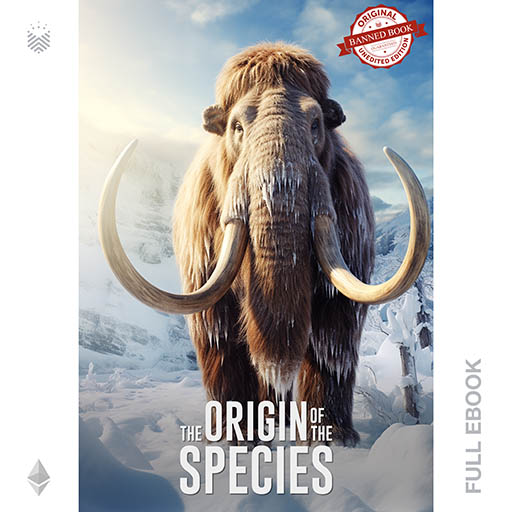
The Extinct
12 Unique Designs
x 1 Numbered eBooks
= 12 NFT eBooks
eBook Numbers 28 - 39
(12.00% of Supply)
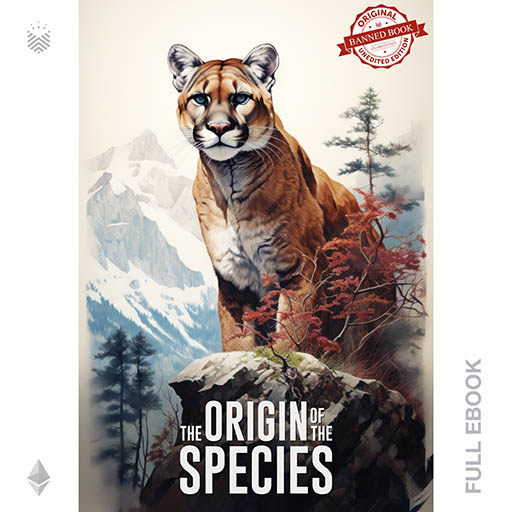
The Origin of the Terrestrials
11 Unique Designs
x 1 Numbered eBooks
= 11 NFT eBooks
eBook Numbers 17 - 27
(11.00% of Supply)
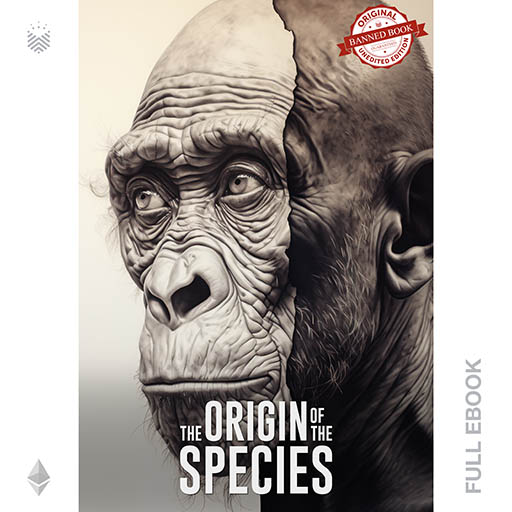
The Evolution
9 Unique Designs
x 1 Numbered eBooks
= 9 NFT eBooks
eBook Numbers 8 - 16
(9.00% of Supply)
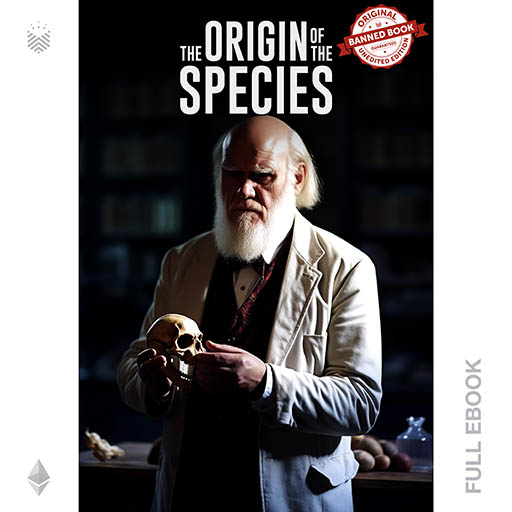
The Darwinism
8 Unique Designs
x 1 Numbered eBooks
= 8 NFT eBooks
eBook Numbers 0 - 7
(8.00% of Supply)
Policy ID: 0x8B2cBE5ecCe7cAD7B60620dA3ba5540A34576dC4
Numbered eBooks: 152
Number of Unique Covers: 152
Number of 1:1 Covers: 152
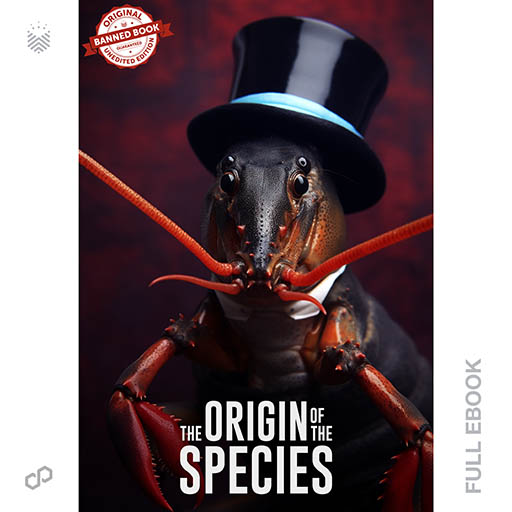
The Origin of Marine Life
35 Unique Designs
x 1 Numbered eBooks
= 35 NFT eBooks
eBook Numbers 117 - 151
(23.03% of Supply)

The Origin of Avian
24 Unique Designs
x 1 Numbered eBooks
= 24 NFT eBooks
eBook Numbers 93 - 116
(15.79% of Supply)
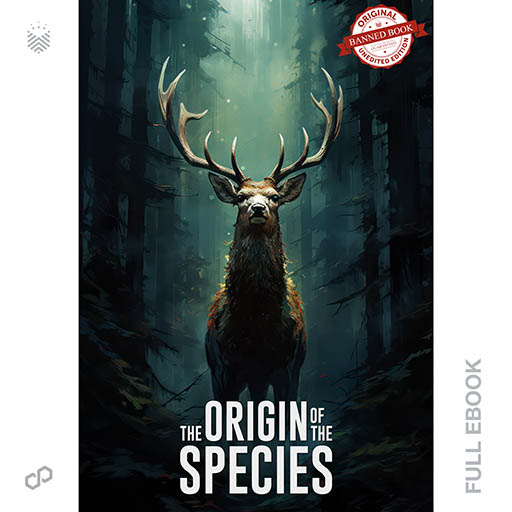
The Origin of the Terrestrials
22 Unique Designs
x 1 Numbered eBooks
= 22 NFT eBooks
eBook Numbers 71 - 92
(14.47% of Supply)

The Extinct
20 Unique Designs
x 1 Numbered eBooks
= 20 NFT eBooks
eBook Numbers 51 - 70
(13.16% of Supply)
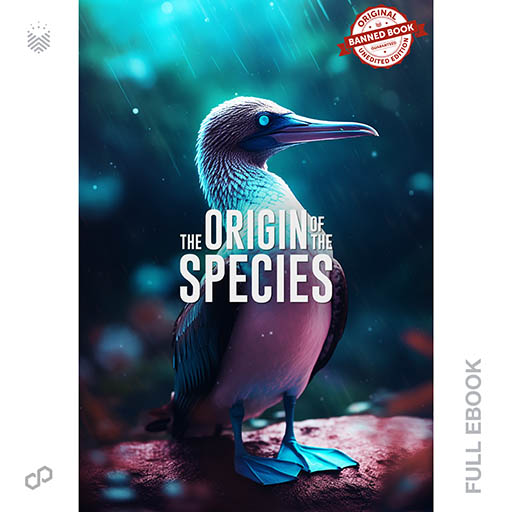
The Living Galapagos
15 Unique Designs
x 1 Numbered eBooks
= 15 NFT eBooks
eBook Numbers 36 - 50
(9.87% of Supply)
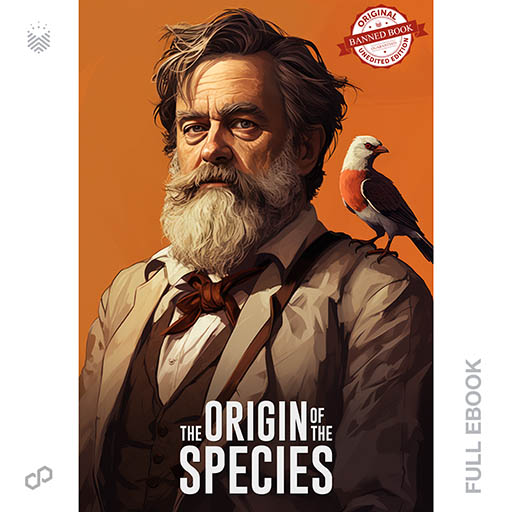
The Naturalist
13 Unique Designs
x 1 Numbered eBooks
= 13 NFT eBooks
eBook Numbers 23 - 35
(8.55% of Supply)
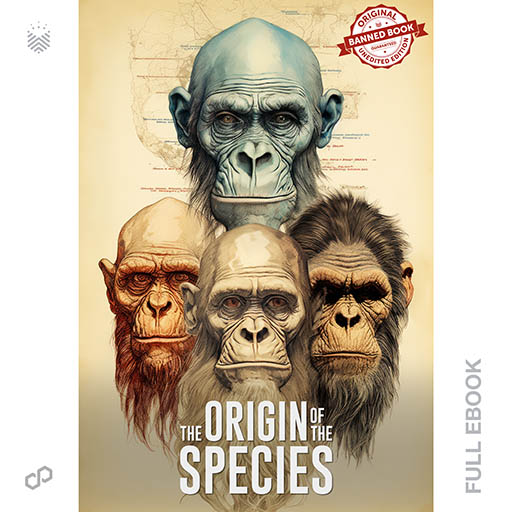
The Evolution
12 Unique Designs
x 1 Numbered eBooks
= 12 NFT eBooks
eBook Numbers 11 - 22
(7.89% of Supply)
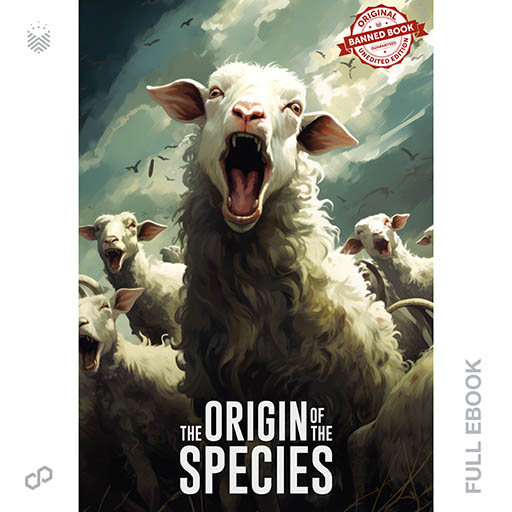
The Darwinism
11 Unique Designs
x 1 Numbered eBooks
= 11 NFT eBooks
eBook Numbers 0 - 10
(7.24% of Supply)
Policy ID: 0x2F6d92F90d3553312c57b6FE5197Bed4e7515820
Details
Publisher : Book.io
Series: Banned, Multi-Chain, Wildlife
First Publication Date : 1859
Author : Charles Darwin
Word Count : 120,000
Format : DEA (Decentralized Encrypted Asset)
Read On : Book.io eReader dApp
Cover Art : Includes 4K hi-resolution book cover
Cardano Retail Price : 129 ADA
Cardano Discount Price : 99 ADA, #OGBookClub
Purchase Limit: 2
Cardano Policy ID : 2611c66c9bf4d7c0a5586f9749ff0fdae59c4b91d10aa623eb145cc5
Ethereum Retail Price : .02 ETH
Purchase Limit: 5
Ethereum Contract Address : 0x8B2cBE5ecCe7cAD7B60620dA3ba5540A34576dC4
Polygon Retail Price : 25 MATIC
Purchase Limit: 3
Polygon Contract Address : 0x2F6d92F90d3553312c57b6FE5197Bed4e7515820
Author Info
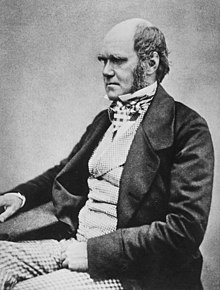
Charles Darwin
From Wikipedia: Charles Robert Darwin (12 February 1809 – 19 April 1882) was an English naturalist, geologist, and biologist, widely known for his contributions to evolutionary biology. His proposition that all species of life have descended from a common ancestor is now generally accepted and considered a fundamental concept in science. In a joint publication with Alfred Russel Wallace, he introduced his scientific theory that this branching pattern of evolution resulted from a process he cal… Read More
The Origin of Species, also known as The Origin of Species by Means of Natural Selection, shook the foundations of science and society when Charles Darwin unveiled his revolutionary theory of evolution. In this groundbreaking work, Darwin presented the idea that species evolve over time through natural selection, where individuals with the strongest traits pass those traits down to future generations. This concept transformed our understanding of life on Earth and sparked debates that continue t… Read More
